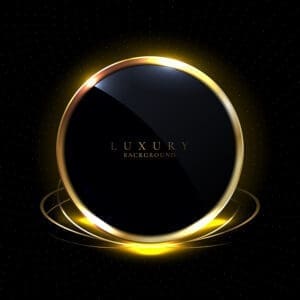 In the past, revenue management was considered a niche function. It was a practice largely applied to guestroom strategies without influence or contributions from other hotel revenue streams.
In the past, revenue management was considered a niche function. It was a practice largely applied to guestroom strategies without influence or contributions from other hotel revenue streams.
However, based on its proven success over the years, hotel revenue management has become widely adopted throughout Asia and is now commonly applied outside of its core room-pricing purpose. Hoteliers today are increasingly applying revenue management principles to ancillary services such as food and beverage, spa facilities, conference facilities and leisure options such as golf courses.
The goal of this Ôwhole property’ revenue management approach is to leverage all hotel functions and maximise their profits in conjunction with one another. This holistic practice encourages hotels to intelligently decide which business to accept across multiple revenue streams on an ongoing basis, based on greatest overall value to the hotel. Hotels that adopt these principles successfully drive profit performance to new heights across their entire asset with more competitive positioning, pricing and inventory management.
However, it is important hoteliers understand any increased focus on overall property profit optimisation must also be supported by processes that strengthen their internal culture. Moving revenue management past guestrooms into other hotel departments requires a robust revenue culture.
Any push to build a holistic revenue culture within a hotel depends on having the right revenue manager for the job in the first place. A quality revenue manager needs to be strategic-thinking, hands-on inÊaccomplishing very detailed tasks, an organisational leader that can drive effective change and innovative in trying new strategies, data and technologies.
In order to build a successful revenue culture within a hotel, the entire management team must be educated and buy in to the new approach. Despite the fact that almost every hotel manages multiple revenue streams, team members within each stream still tend to make pricing decisions based on the impact of their line of business only. To maximise future revenue and profitability, and stay ahead of the countless other hotels and rooms on the market, savvy hoteliers will need to ensure all departments work closely together.
Hotels looking to converge previously siloed hotel departments to achieve overall property optimisation need to take an in-depth look at team alignment, business processes and technology requirements. They need to consider if their cross-functional sales, catering and revenue management teams are aligned and working effectively. Hoteliers should ask themselves what type of educational and training support is needed for their teams to successfully manage pricing and inventory decisions in a scientific and methodological way.
The shift from focusing solely on guestroom revenue to the adoption of an organisational culture that applies revenue management throughout various departments also means that hotels need to broaden the types of metrics they use for performance evaluation.
Aside from standard rooms-focused metrics, hotels need to shift toward a comprehensive understanding and comparison of total revenue performance metrics. Hotel meetings and events spaces, onsite restaurants, spa services and other hotel revenue streams all make significant contributions to overall profitability. When these revenue streams are not properly measured and evaluated, a hotel is operating without full knowledge of the performance of its various departments. Establishing KPIs that measure areas beyond rooms to areas like function space is typically the best place for organisations to start. Emerging KPIs in function space revenue management include space utilisation, profit per occupied space (ProPost) and profit per available space (ProPast). Establishing these types of performance metrics within an organisation, in addition to having the right technology and processes in place to capture, measure and control these KPIs, will help establish a baseline for hotel teams to work towards improving and optimising against.
For a hotel to sell its whole property effectively, it needs to provide traditional roles of sales, marketing and revenue management, in addition to food & beverage, banqueting, finance and other departments closer together. It will take the entire teamÑnot just one department or groupÑto capture the right guest for the hotel considering their overall spend, not just their room outlay.
By Charles Wang, Regional Head of Advisory Services at IDeaS
 Charles Wang is the Regional Head of Advisory Services, based in Beijing and working in Asia Pacific and Greater China for IDeaS – a leading provider of revenue management software, services and consulting. In his role at IDeaS, Charles leads a team of professional advisors to deliver trusted revenue management deployment services to hotels and selected industry clients across the region.
Charles Wang is the Regional Head of Advisory Services, based in Beijing and working in Asia Pacific and Greater China for IDeaS – a leading provider of revenue management software, services and consulting. In his role at IDeaS, Charles leads a team of professional advisors to deliver trusted revenue management deployment services to hotels and selected industry clients across the region.
Want to keep up to date with industry news? Click here to subscribe toÊeHotelier’s dailyÊe-newsletter.


 In the past, revenue management was considered a niche function. It was a practice largely applied to guestroom strategies without influence or contributions from other hotel revenue streams.
In the past, revenue management was considered a niche function. It was a practice largely applied to guestroom strategies without influence or contributions from other hotel revenue streams.

















